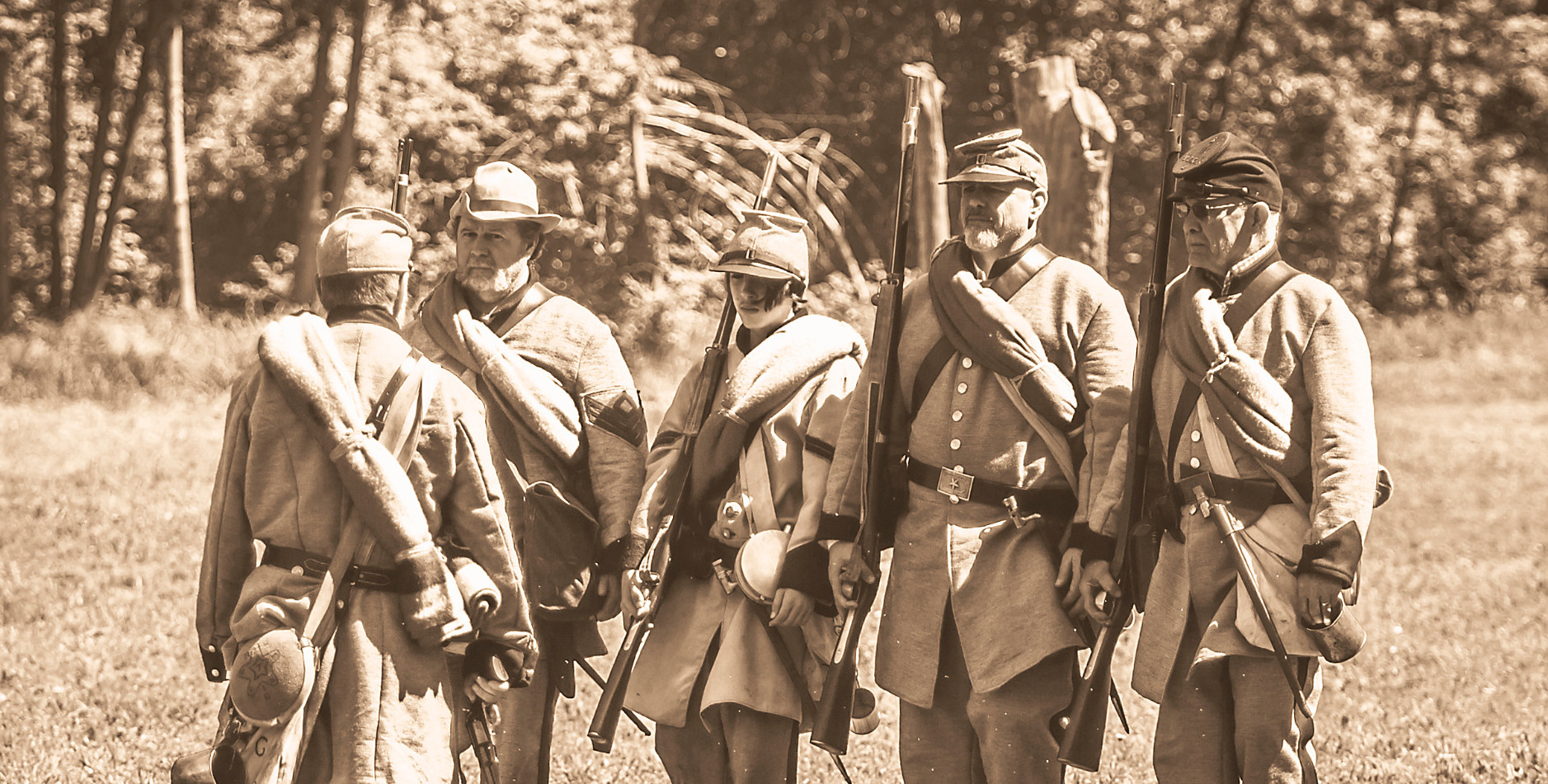1st Texas Infantry
1st Texas Infantry, Co G
Hood's Texas Brigade was a distinguished brigade in Lee's Army of Northern Virginia. According to Harold B. Simpson, historian of Hood's Texas Brigade, the Texas Brigade was to Robert E. Lee and the Army of Northern Virginia what the Old Guard was to Napoleon and the Imperial Army of France--first in the advance--shock troops in battle--the rear guard in retreat.
The Civil War record of the Texas Brigade was magnificent. The
Brigade fought in every battle engaged in by the Army of Northern
Virginia except Chancellorsville, which it more than made up for by
fighting at Chickamauga, Knoxville and Suffolk. The Texans fought in
38 engagements including six of the greatest battles of the
war--Gaines' Mill, Second Manassas, Sharpsburg, Gettysburg,
Chickamauga and the Wilderness. In all of these engagements, the men of
the Brigade distinguished themselves and drew praise upon them from
all who observed their conduct.
Among those who praised them often was Robert E. Lee. Of all his troops, Lee favored the Texans the most and often referred to them as "My Texans." Several times during the war, Lee requested more Texas troops, once remarking that he relied on his Texas regiments "in all tight places." In October 1864, while waiting for some of his troops to form for an assault, Lee asked a staff officer if all commands were formed for the advance. "None but the Texas Brigade, General," answered the staff officer. Lee then said, "The Texas Brigade is always ready."
Just a glance at casualty figures for the Texas Brigade during the Civil War will show that the Texans were generally in the thickest of most fights which they were engaged. Total Civil War causalities for the 1st, 4th and 5th Texas regiments was nearly 62%. At Shaprsburg, the Texas Brigade had a casualty rate of 64.1%, the third highest battle loss of any brigade, Union or Confederate, during the war. In the same battle, the 1st Texas Infantry suffered the highest single battle loss of any regiment, Union or Confederate, during the war--82.3%.


